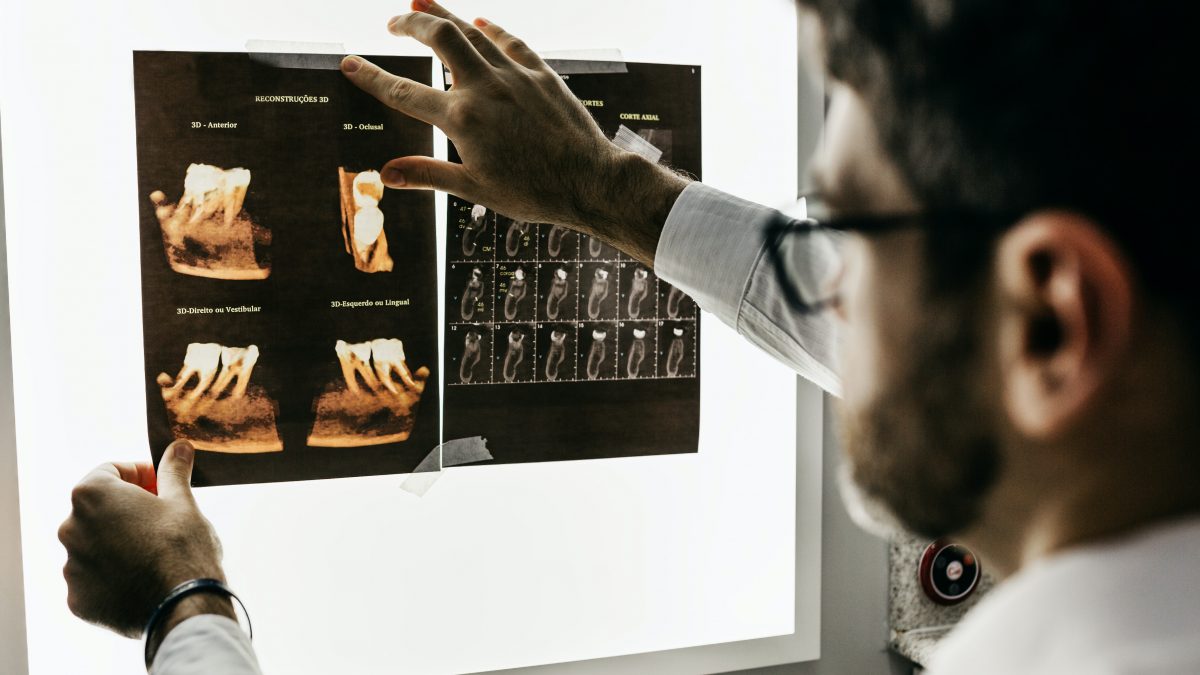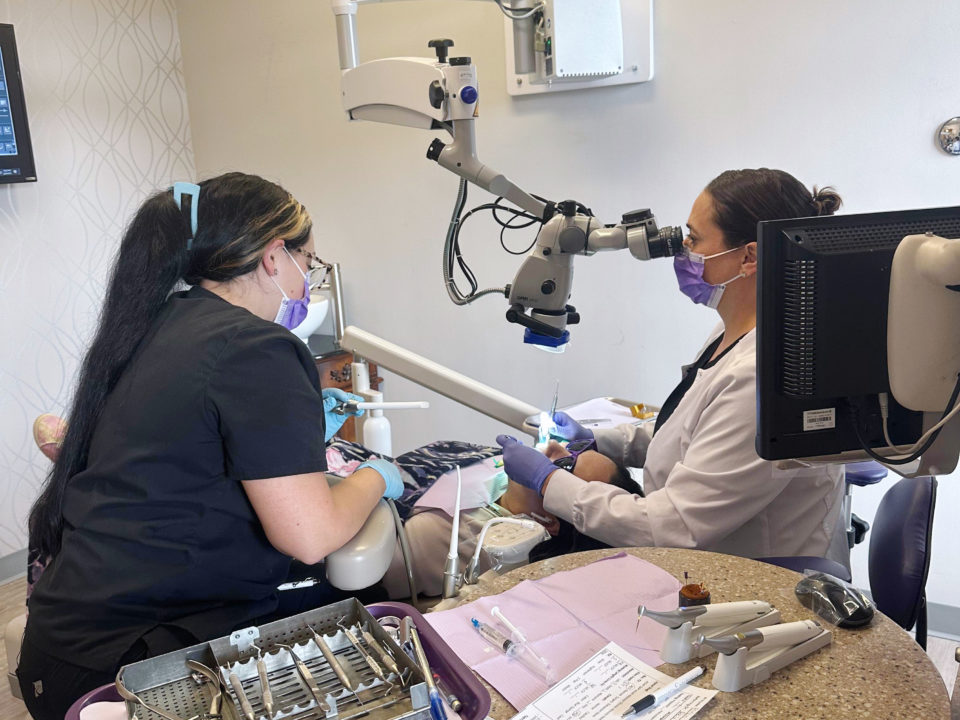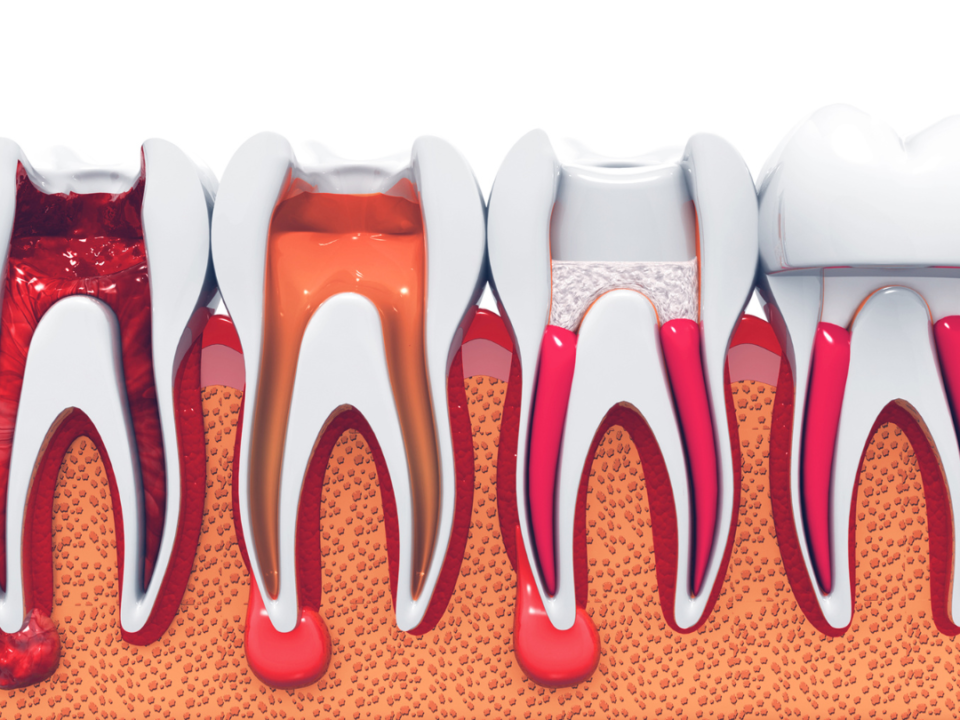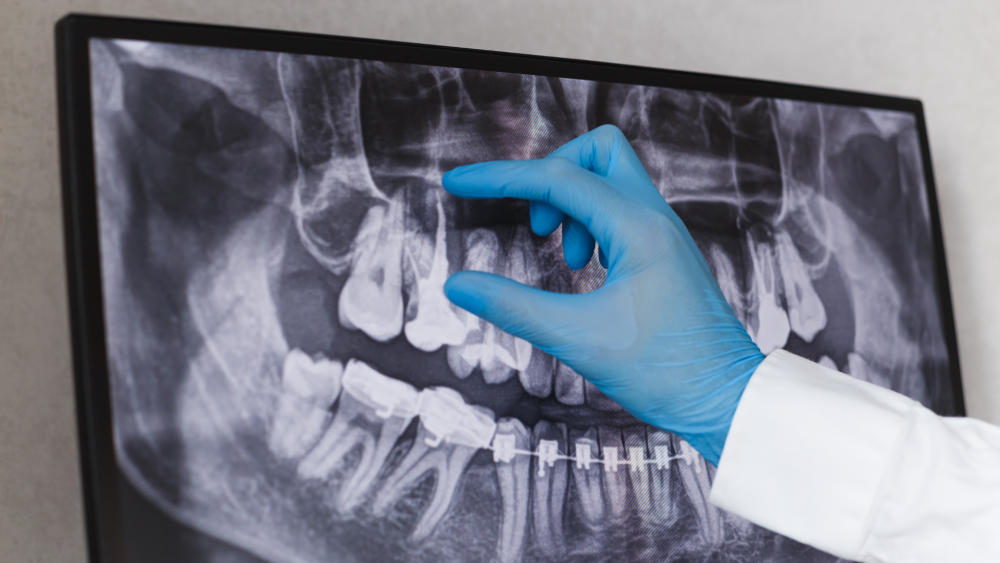
How Do You Know If You Need A Root Canal?
June 21, 2022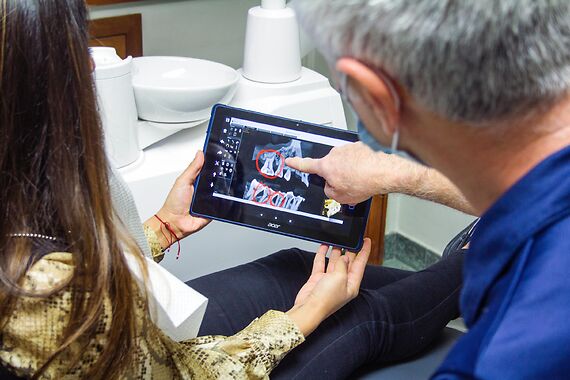
What is the Difference Between a Root Canal and Extraction?
June 22, 2022
How Do You Know If You Need A Root Canal?
June 21, 2022
What is the Difference Between a Root Canal and Extraction?
June 22, 2022Getting a root canal typically lasts for a lifetime. However, some conditions can lead to reinfection of the treated tooth. When this happens, you may experience similar symptoms as you did before needing the initial root canal. What are the causes of reinfected root canals and what can you do when you have this happen? Innovative Endodontics has created this guide to help you with these questions and many more.
Reinfected Root Canal Causes
The need for a root canal is due to bacteria invading the inside of your tooth and it’s not surprising that the need for additional root canal treatment is actually due to the same thing. If this bacteria is not addressed, the bacteria will grow and multiply, producing acidic products of their metabolism that eat into your tooth. Without treatment, people who have this type of deep infection could lose their teeth.
However, if you got root canal therapy, your endodontist stopped the bacterial invasion inside your tooth. They clean out the infected pulp and seal the tooth’s interior. Lastly, you will have a filling or a crown placed on the tooth to keep it protected.
Occasionally, bacteria can re-enter the tooth in various ways, causing additional problems.
Reinfection After Root Canal Therapy
The vast majority of root canal treatments are successful. However, in rare instances, the internal anatomy of a tooth may be complicated and difficult to clean. Bacteria could remain behind in these tiny, unreachable spots.
Another source of infection could occur if you take too long to get a permanent crown or filling over a treated tooth. The crown adds strength to the tooth to protect it from cracking and letting bacteria inside. If you wait too long to get the crown, bacteria could find a way into the temporarily-filled tooth, causing reinfection.
These causes of reinfection typically happen just a few weeks after the initial procedure.
Problems Caused By New Infections in the Tooth
After getting root canal treatment, the tooth may remain more susceptible to damage compared to other teeth. The filling and crown offer stability, but depending on hygiene and nutritional choices, all dental restorations can break down over time. Your tooth could experience decay beneath a crown, reintroducing bacteria into the tooth.
Cracked, broken crowns or cracked teeth are causes of reinfected root canals. These situations allow bacteria to get inside the tooth the same as decay can. Either of these situations requires an evaluation by an endodontist to see if endodontic retreatment will help save the tooth.
Symptoms of a Reinfected Root Canal
Symptoms of a reinfected root canal can be similar to the symptoms that originally prompted you to get a dental evaluation and root canal in the first place.
The following are common symptoms that you might feel:
- Pressure in the tooth
- Discomfort that returns to the tooth after the site initially heals from the root canal procedure
- Constant, dull ache
- Localized redness or swelling in the gums
- Possible pimple-like swelling on the gums
- Sharp pain when biting down
- Extra sensitivity in the tooth, especially to heat and cold
Sometimes, the discomfort may diffuse across multiple teeth, making it difficult to identify the specific tooth you have trouble with. For any type of dental discomfort, consult with your dentist to see if you have a reinfected root canal, need a cavity filled, or require endodontic surgery.
What to Do If You Think You Have a Reinfected Root Canal
If you suspect reinfection of a treated tooth after getting root canal treatment, contact the endodontist who performed the procedure or your dentist.
When you have a new problem in a tooth that once had treatment, reach out to your dentist. You may need x-rays to determine if you need endodontic care.
How an Endodontist Treats a Reinfected Root Canal
Once it is determined that your tooth needs endodontic care for reinfection, you will visit your endodontist for endodontic retreatment or endodontic surgery.
Endodontic retreatment is the most common type of care your endodontist will provide. Basically, this procedure is re-doing the root canal to clean out the bacteria in the tooth. As long as there is no evidence of decay, the existing crown or restoration can be kept and only a small hole is made within the crown to get to the inside of the tooth. Next, they will reclean the interior of the tooth. This will remove any new bacteria and infection that has formed or was initially missed. After cleaning out the tooth’s root canals, the endodontist will reseal and add a temporary filling. You will again need to go back to your dentist for a permanent restoration. The whole procedure will feel similar to getting a filling.
You might require surgery if you had areas inside your tooth that the original root canal could not reach or if the tooth is heavily restored. Surgery can treat your tooth from the root end to clean out debris and infection to correct the issue. Although surgery sounds intimidating, it is a minor procedure that is often accomplished in as little as 45 minutes and only has a few days of soreness afterward. It is worth it to save your tooth!
How to Prevent Reinfection in a Root Canal Treated Tooth
While reinfection can happen from problems during the initial root canal treatment, there are things that you can do to avoid this problem.
First, find a reputable endodontist to perform your root canal. They have more practice than dentists performing this procedure. According to the American Association of Endodontists, general dentists usually perform an average of two root canal therapies weekly. But an endodontist can perform 12 times more, an average of 25 a week.
Second, make sure to schedule your follow-up with your general dentist to get a crown based on your endodontist’s recommendation. Don’t put it off longer than two weeks. The more you delay getting a crown, the greater the chances of reinfection.
Lastly, take good care of your teeth with regular brushing and flossing to prevent decay and future reinfection and make good nutritional choices. You should also use good oral protection, such as sports mouth guards, to prevent cracked teeth when playing impact sports. If you clench or grind your teeth at night, a night guard should be worn to protect against cracked teeth. These measures will help your root canal treatment last as long as possible and reduce reinfection.
Trust Innovative Endodontics for the Endodontic Retreatment
If you suspect a reinfected root canal, contact an endodontist right away. The longer you wait, the worse the problem will get and it could result in you losing your tooth. Let us at Innovative Endodontics help you to experience comfortable, compassionate endodontic care. Our team is the best at what they do, which is why our procedures are quick and painless. Contact us today to schedule a visit!

